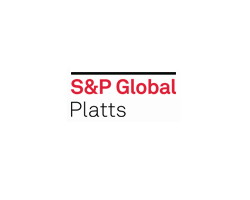Met Coal Players Raise Concerns Over Indonesia's New Export Earnings Policy

January 24, 2025 - Market participants in Indonesia's metallurgical coal industry have raised concerns over the government's new export earnings retention policy, fearing it could create significant cash flow challenges, particularly for small- and medium-sized miners.
Indonesia will mandate natural resource exporters to park all their proceeds onshore for at least one year, effective March 1, according to a cabinet meeting held Jan. 21.
The foreign exchange export proceeds (Devisa Hasil Ekspor, or DHE) policy "will be applied comprehensively, requiring 100% compliance for a one-year period," Airlangga Hartarto, coordinating minister for economic affairs, said at the meeting.
The revision is a stark change from current rules, which specify that exporters of natural resources like coal, palm oil and nickel products must retain 30% of their export proceeds with a value of more than $250,000 onshore for at least three months.
In the future, all exports with a shipping document valued at $250,000 or more will be subject to the new regulation.
"(The miners) will need cash flow for 12 months to survive. Small mines will be gone," a local miner source said.
The policy could prompt local miners to sell more domestically to maintain liquidity, which may intensify competition in the local market, the source reckoned.
"The domestic market demand is limited," another miner source said, adding that producers will still need to export to sustain operations.
Over January-November 2024, Indonesia exported around 24 million mt of coking coal, with the bulk of shipments going to China, Japan, Taiwan and Malaysia.
Large Sums to be Parked
The new policy will bolster the supply of US dollars to stabilize the Indonesian rupiah and result in large sums being parked domestically.
In 2024, the value of Indonesia's non-oil and gas exports totaled $248.83 billion, up 2.46% from 2023, data from Badan Pusat Statistik Indonesia (Central Bureau of Statistics Indonesia) showed.
Of the overall sum, exports of iron and steel totaled $25.8 billion, down 3.38%, while outflows of nickel and articles reached $8 billion, up 17.32%, all compared with 2023. Exports of mining and others were valued at $46.57 billion, down 10.20% from 2023.
"Our people said this won't affect our interest much. International nickel and coal producers will be affected financially," an Asian coke producer said.
In the lead-up to March 1, Hartarto said, "The government and central bank Bank Indonesia (BI) are preparing facilities, including a 0% income tax rate on interest income from instruments used for placing DHE. Normally, the tax rate is 20%, but for DHE, it will be 0%."
Also, several mechanisms will be offered to assist exporters in using DHE.
"Exporters can utilize DHE placement instruments as back-to-back collateral for rupiah loans from banks or INA (Indonesia Investment Authority) to meet their domestic rupiah needs," Hartarto said.
"The provision of funds using placement instruments of natural resources' export proceeds as collateral will not impact the gearing ratio or the debt-to-equity ratio. Companies are expected to maintain manageable debt levels for exporters," he said.
"In response to this policy, the government will soon revise Government Regulation No. 36, which will take effect on March 1 of this year. Therefore, BI, the Financial Services Authority, banks, and customs authorities will prepare the necessary systems, and we will provide outreach to stakeholders," he said.
Platts, part of S&P Global Commodity Insights, assessed Premium Low-Vol Hard Coking Coal up $1.50/mt day over day at $189.50/mt FOB Australia on Jan. 22, while PLV CFR China was assessed down $2/mt at $187/mt over the same period.

